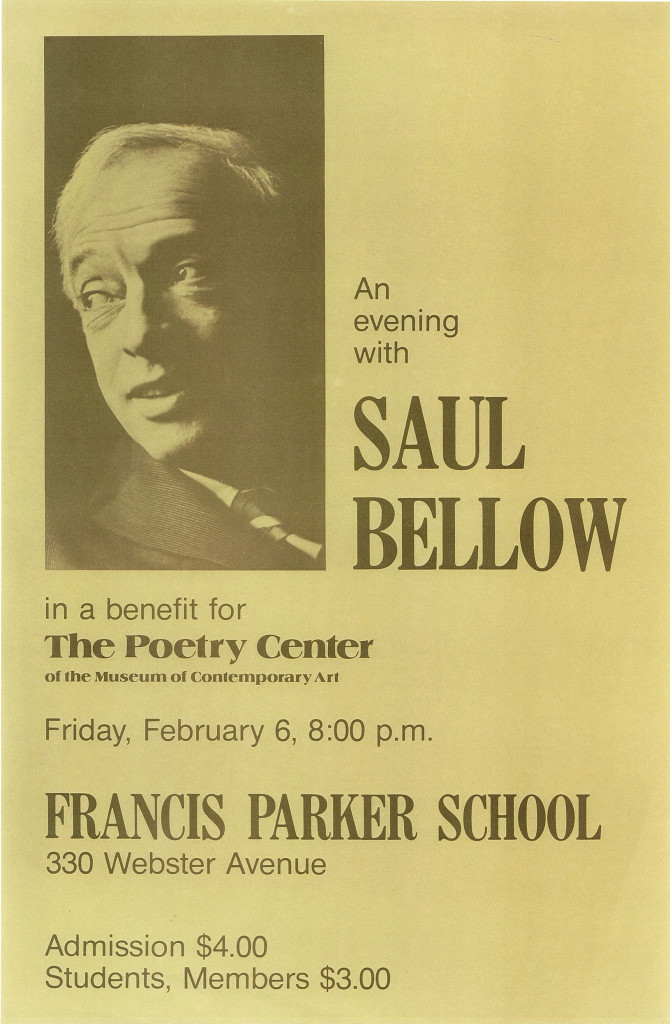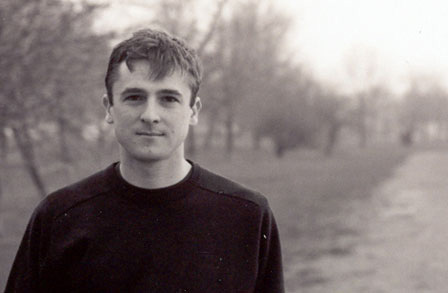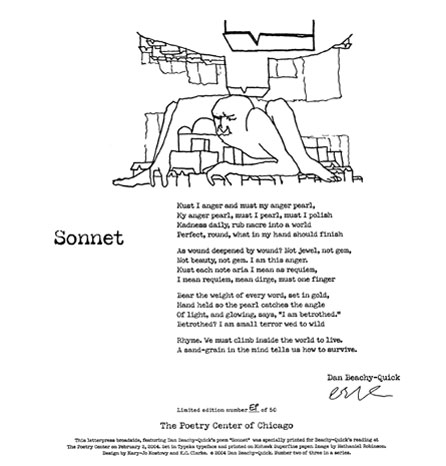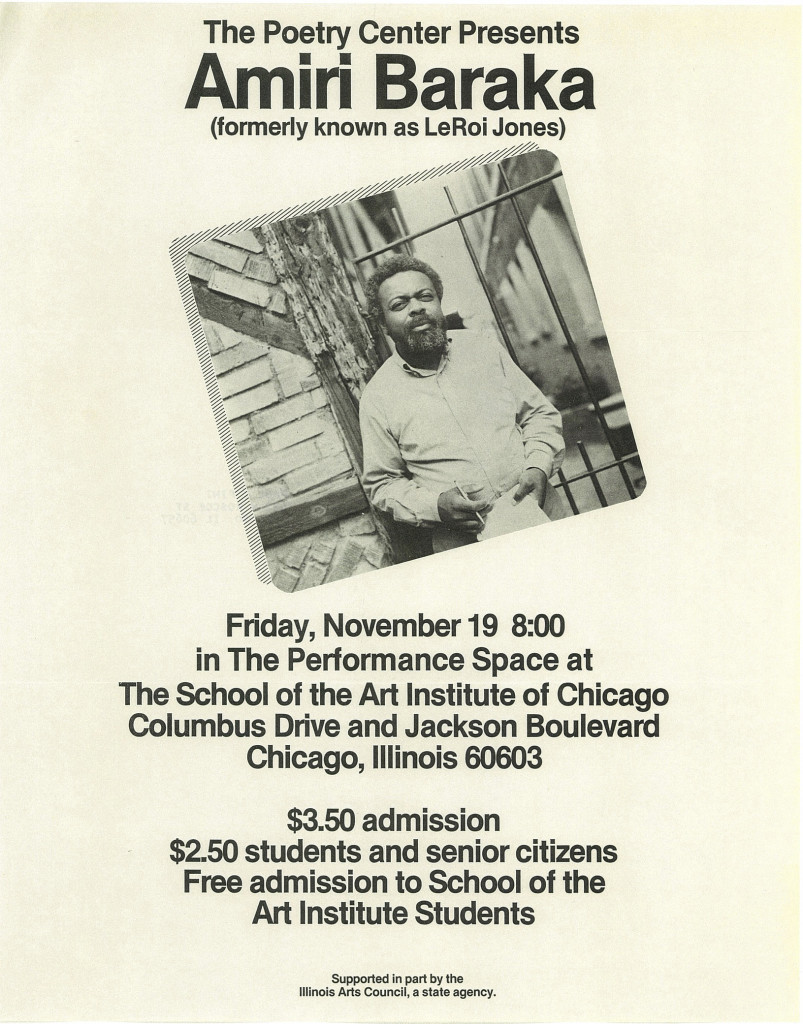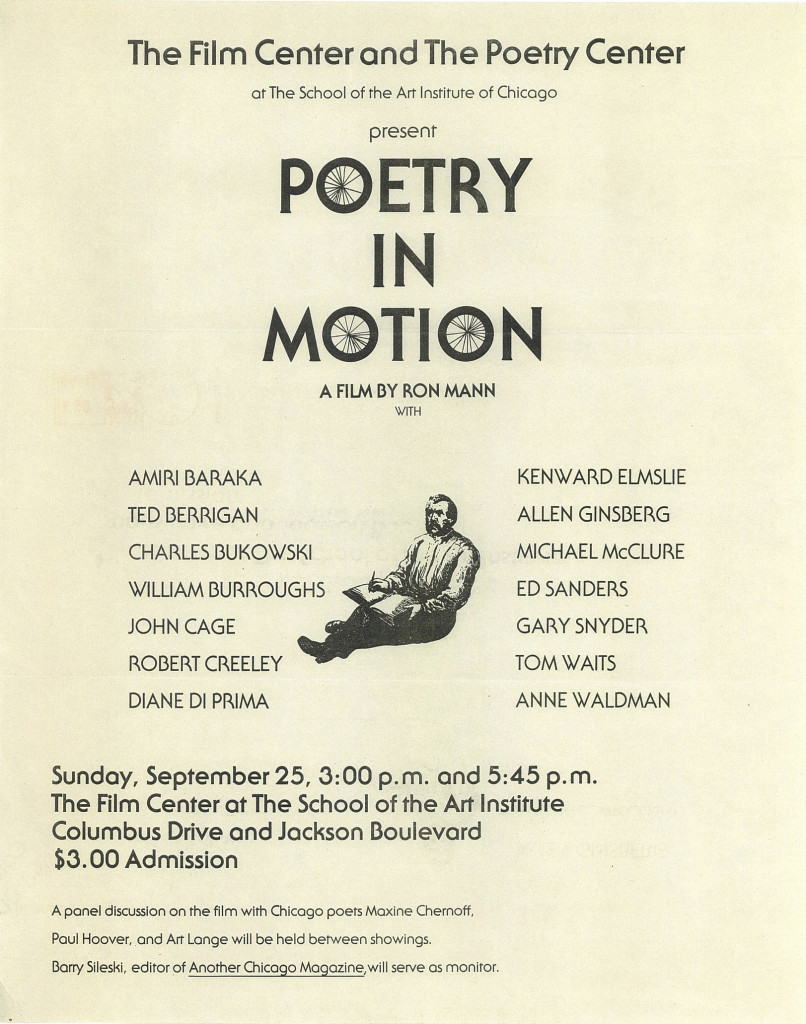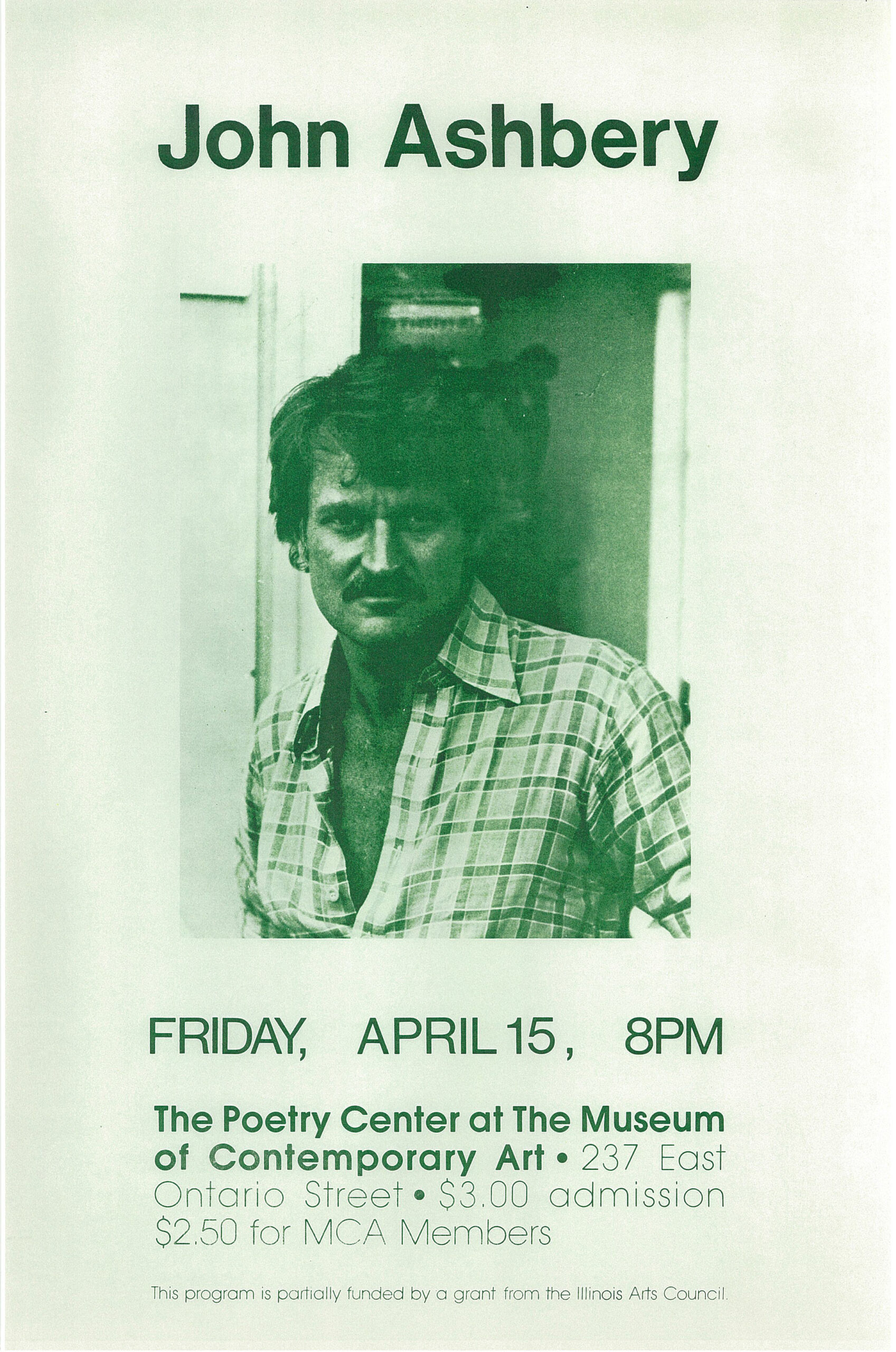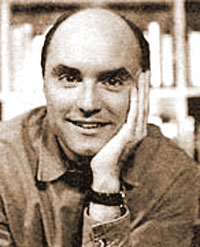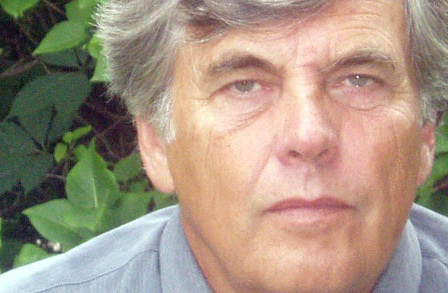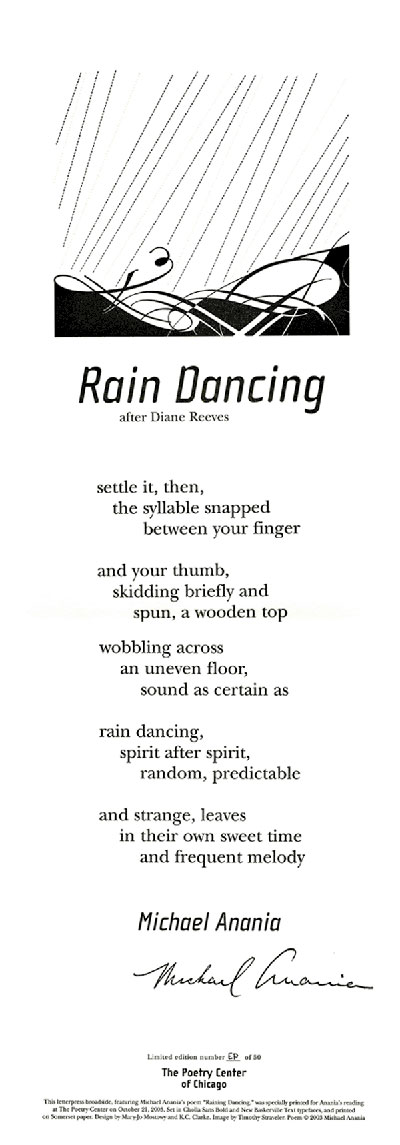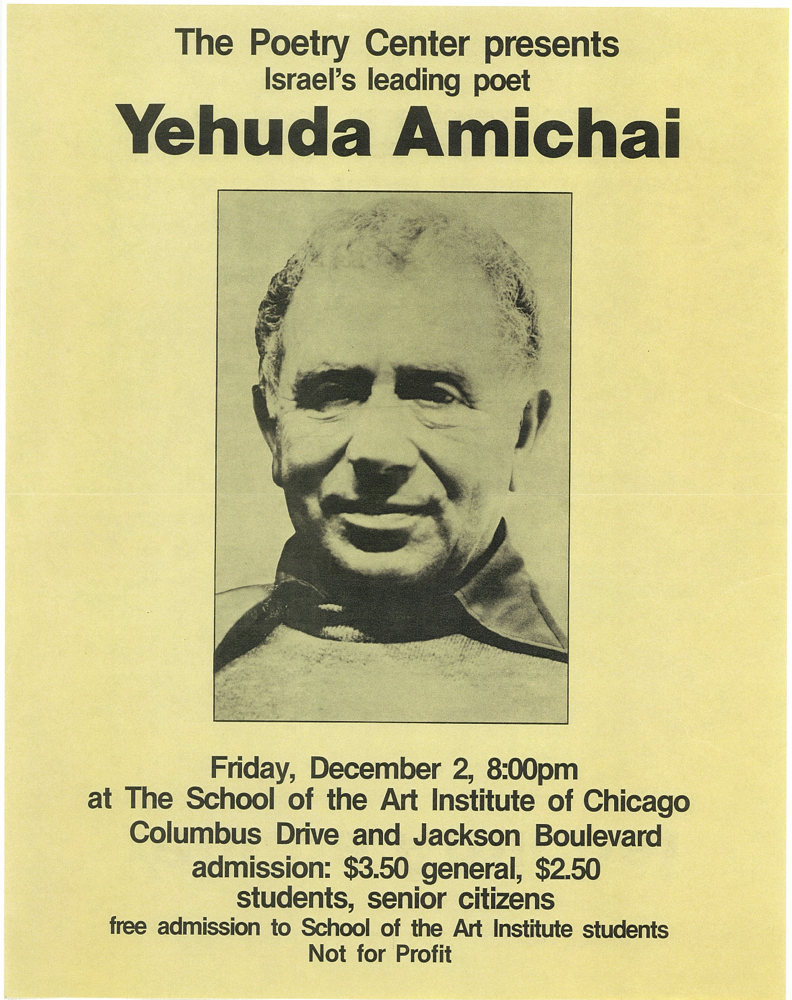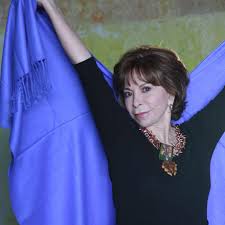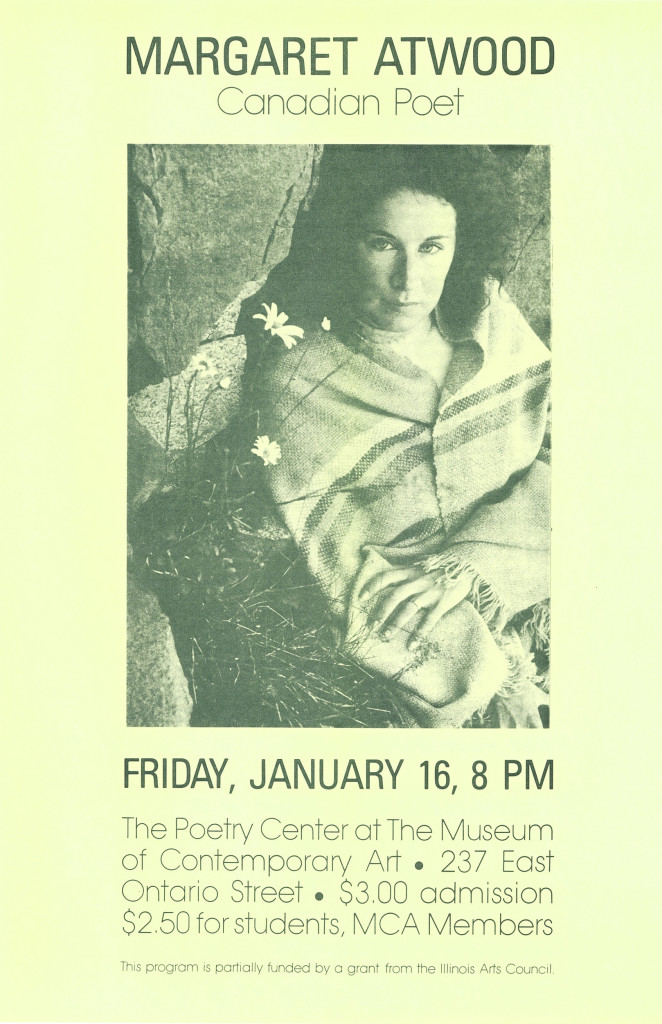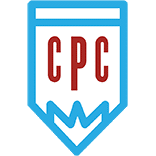Bellow, Saul 1976
Francis Parker School
I am an American, Chicago born–Chicago, that somber city–and go at things as I have taught myself, free-style, and will make the record in my own way: first to knock, first admitted; sometimes an innocent knock, sometimes a not so innocent. But a man’s character is his fate, says Heraclitus, and in the end there isn’t any way to disguise the nature of the knocks by acoustical work on the door or gloving the knuckles.
– Saul Bellow, “The Adventures of Augie March”
Read this interview with Saul Bellow from the Paris Review:
The Art of Fiction No. 37
Drawing by Rosalie Seidler. The interview “took place” over a period of several weeks. Beginning with some exploratory discussions during May of 1965, it was shelved during the summer, and actually accomplished during September and October. Two recording sessions were held, tota…
Listen to Saul Bellow read from “Humboldt’s Gift:”
Saul Bellow Reads from “Humboldt’s Gift” and “Henderson the Rain King,” October 10, 1988 by The Paris Review
Bellow reads from “Humboldt” and then “Henderson,” with audience Q/A starting at about 50:55.

